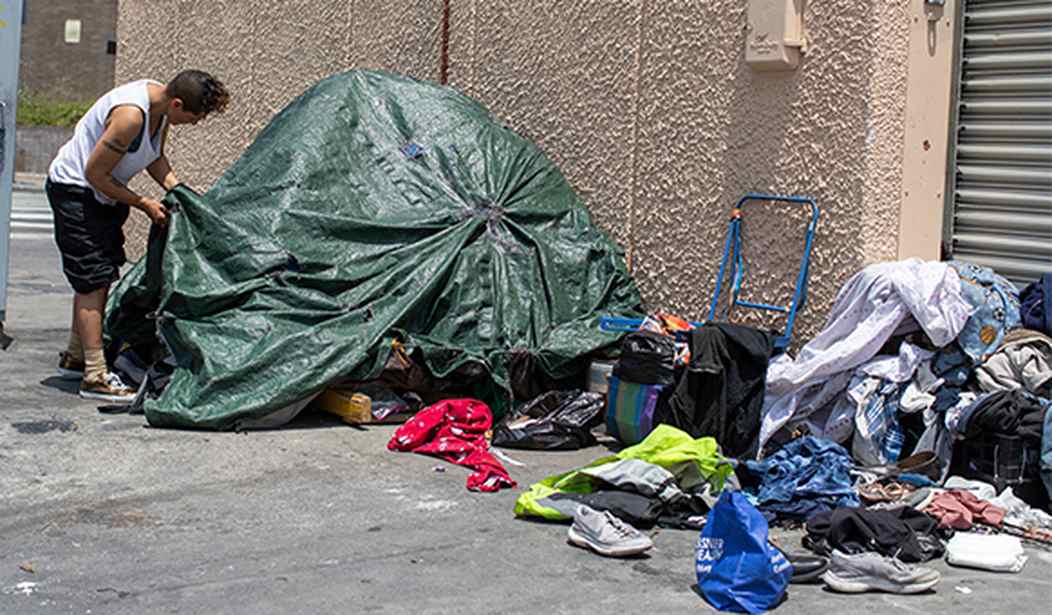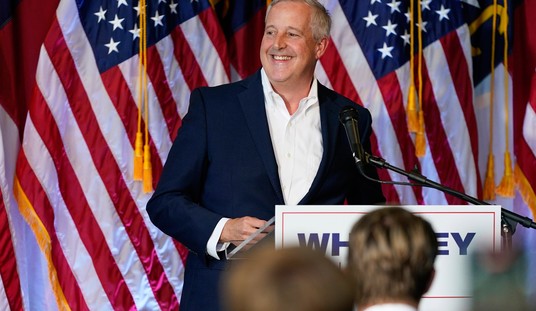In a five-hour emergency hearing in federal court Thursday, officials from the City of Los Angeles and Los Angeles County were “grilled” by Judge David Carter about their plans to protect the area’s homeless population from the Wuhan coronavirus. The lawsuit, filed by the Los Angeles Alliance for Human Rights, filed suit March 12 claiming that conditions in homeless encampments – which are rarely cleaned up by government officials – are inhumane and will kill a significant number of homeless people.
Of course, an opposing civil rights group has filed a Motion to Intervene, citing a concern for the personal property rights of those living on the streets.
Those questioned by the judge included Los Angeles Mayor Eric Garcetti, Los Angeles City Attorney Mike Feuer (who just announced that he’s running for Mayor in 2022), Los Angeles County Board of Supervisors Chair Kathryn Barger, LAPD Chief Michael Moore, and LA City Council President Nury Martinez.
From the Los Angeles Times:
[Judge Carter] peppered them with questions, pressing for solutions that would provide some immediate relief for people living on the streets as the number of confirmed coronavirus cases continues to swell.
Government officials expressed fear that if the outbreak reaches the homeless population, it would ravage a group of people who are already vulnerable to health problems from the strain of living on the streets.
“I think there’s considerable fear and anxiety, especially for those of us who have a deep caring for those who are not only the most vulnerable but the most susceptible,” Garcetti said. “Most vulnerable because they’re much more likely to have underlying health conditions.”
Moore described how the Los Angeles Police Department’s officers didn’t want to be in a situation in which they would have to force people into shelters, and he added that outreach workers and mental health professionals needed to be running the facilities.
L.A. Fire Chief Ralph Terrazas told the court about the strain the coronavirus outbreak was having on firefighters who are already overworked as a result of the homelessness crisis.
L.A. County Dist. Atty. Jackie Lacey described how she was working with the Los Angeles County Sheriff’s Department to mitigate the potential spread of the coronavirus in the county jails. She said they have identified 2,000 nonviolent or nonserious offenders and are discussing whether to release them.
(As we reported Wednesday, more than 600 inmates who had less than 30 days left on their sentences have been released from LA County Jails, but there was no discussion of whether those inmates had homes to return to or if they’d simply be heading to homeless encampments.)
The Court also heard from representatives of the Salvation Army who were in the audience, who said that the nonprofit had a “long list of locations that could be used for shelters or triage centers.” Upon hearing that, Carter sent the interim executive director of the Los Angeles Homeless Services Authority (the former director resigned recently amid questions about spending – shocker) “to the back of the room to hash out a deal.” How refreshing – a judge who wants to cut through the BS and get something done.
In the complaint, the Alliance alleges that City and County officials “have violated state and federal laws requiring government to protect the neediest members of society, to keep sidewalks clear of obstructions for residents with disabilities and to ensure safety on public rights of way.”
“Enforcement of homeless-related crimes has been reduced, or in some cases eliminated, in the name of compassion. But allowing people to die on the streets isn’t compassionate; it’s cruel.”
They’re absolutely correct.
Representatives of organizations that make up the Homeless Industrial Complex have filed motions to intervene in the case and were in attendance and claimed that it would be “unimaginable” for them to not be involved in the case. (Gotta protect that grift, yo.) Those groups also filed a nonsensical motion “calling on the city and county to suspend enforcement of quality-of-life offenses that lead to citations for homeless residents, stop confiscating possessions that exceed city restrictions, and suspend comprehensive cleanups of encampments unless they involve power washing that requires people to be displaced, among other measures.”
Why would public health officials want to leave large quantities of contaminated possessions on the streets? Why would they want to SUSPEND comprehensive cleanups of encampments? Those encampments are where diseases are already breeding; there are exactly zero reasons why anyone with an ounce of compassion would want those people to stay in that environment. One representative opposed busing the homeless to hotels and motels to get them off the streets, claiming that transporting them in a crowded bus would go against social distancing recommendations and thus puts those people at risk.
So let’s just leave them out in the cold (nighttime temperatures in Los Angeles have been in the 30’s and 40’s for the past few weeks), sleeping in tents, and with no sanitary bathroom facilities or places to wash their hands. Sounds like a way to kill a lot of them.
Or is that their point?














Join the conversation as a VIP Member